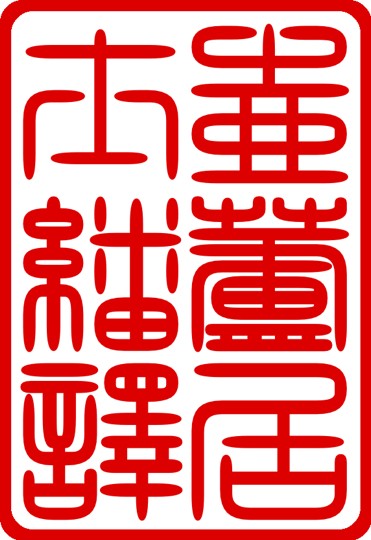Immortal’s Palm Tea: Preface and Poem
Immortal’s Palm Tea: Preface and Poem*
Li Bo (701-762 A.D.) of the Tang dynasty
I have heard of Jade Spring Temple near the clear streams and serried hills of Jingzhou, where all the mountain grottos possess stalactite caves, where the many tributaries of Jade Stream mingle, where the white bats are as big as crows. According to the Book of Immortals, bats were known as celestial mice. After a thousand years, their bodies turned white as snow. When perched, they hung upside down. Drinking the stalactite waters, they were long-lived. Everywhere along the stream, there is tea with stems and leaves like blue-green jade. Only Master Zhen of the Jade Spring Temple used to pick the tea to drink. He was over eighty with a complexion like peaches and plums. This tea is pure in fragrance and mellow in taste, different from other teas. Thus, it restores youth and reverses decay, enhancing longevity. While in Jinling, I saw my nephew Zhongfu who showed me several tens of tea leaves, all curled and layered, shaped like hands, and bearing the name Immortal’s Palm Tea. It is newly produced from the hills of Jade Spring Temple: nothing like it has ever been seen before. Since Zhongfu presented me with this tea and a poem, he wishes me to respond. Therefore, I have written this introduction. Hereafter, the eminent monks and great recluses will all know that Immortal’s Palm Tea began with the Zen master Zhongfu and the Buddhist layman Green Lotus, Li Bo.
Ever have I heard of Mount Jade Spring,
Of its mountain grottos filled with stalactite caves
And immortal bats as big as white crows,
All hanging down above the clear, moonlit stream.
Tea grows among the rocks
And along Jade Spring’s ceaseless flow.
Root and stem exude a rich fragrance;
One whiff nurtures flesh and bone.
Lush and voluminous, the green leaves;
Branch upon branch, row upon row.
The sun dries Immortal’s Palm,
Coddling it like Hong Ya’s shoulder.
The world has never seen the like,
But who will spread its name?
Nephew Ying, the Zen master
Presents this tea and a beautiful poem;
Both are bright mirrors embellishing ugly Wuyan,
But I am shamed by the beauty Xizi.
Even so, this morning I joyfully
Sing this song to the Heavens.

Portrait of Li Bo
唐李白
答族侄僧中孚贈玉泉仙人掌茶並序
余聞荊州玉泉寺近清溪諸山,山洞往往有乳窟,窟中多玉泉交流,其中有白蝙蝠,大如鴉。按《仙經》,蝙蝠一名仙鼠,千歲之后,體白如雪,棲則倒懸,蓋飲乳水而長生也。其水邊處處有茗草羅生,枝葉如碧玉。惟玉泉真公常採而飲之,年八十余歲,顏色如桃李。而此茗清香滑熟,異於他者,所以能還童振枯,扶人壽也。余游金陵,見宗僧中孚,示余茶數十片,拳然重疊,其狀如手,號為“仙人掌茶”。蓋新出乎玉泉之山,曠古未覿。因持之見遺,兼贈詩,要余答之,遂有此作。后之高僧大隱,知仙人掌茶發乎中孚禪子及青蓮居士李白也。
常聞玉泉山
山洞多乳窟
仙鼠如白鴉
倒懸清溪月
茗生此中石
玉泉流不歇
根柯灑芳津
採服潤肌骨
叢老卷綠葉
枝枝相接連
曝成仙人掌
似拍洪崖肩
舉世未見之
其名定誰傳
宗英乃禪伯
投贈有佳篇
清鏡燭無鹽
顧慚西子妍
朝坐有餘興
長吟播諸天
*Previously published on Cha Dao: http://chadao.blogspot.com/ (April 19, 2011) with many thanks to Corax.
Source
Cao Yin 曹寅 (1658-1712) and Peng Dingqiu 彭定求 (1645-1719) et al. comps, Quan Tangshi 全唐詩 (Complete Poetry of the Tang Dynasty, 1705), juan 卷 178.
Figure
Liang Kai 梁楷 (ca. 1140-1210)
Li Bo, 13th century
China: Southern Song dynasty
Hanging scroll: ink on paper
Tokyo National Museum

